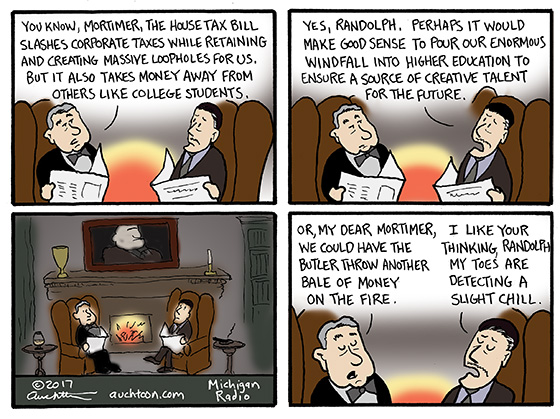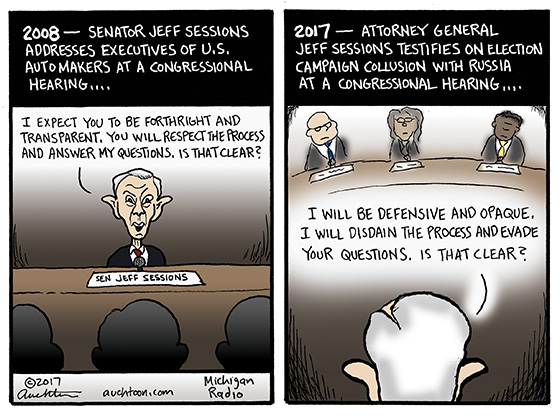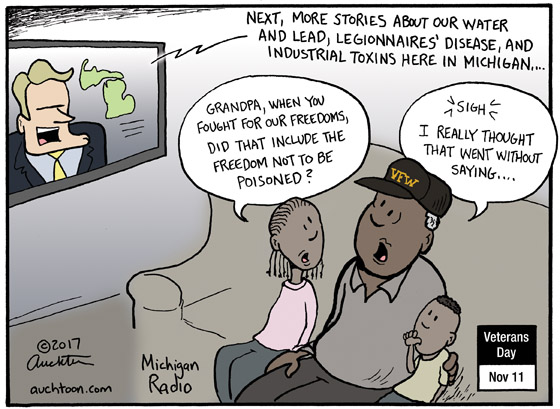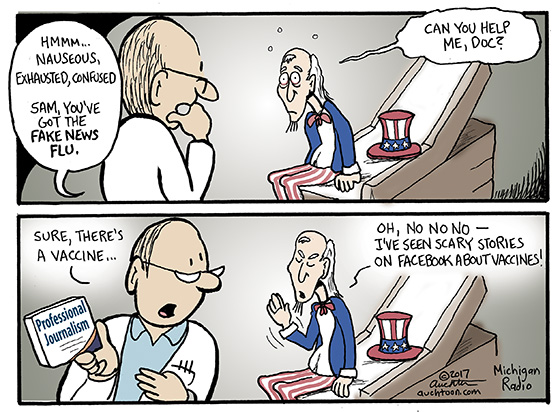Where Have All the Bad Guys Gone?
My wife and I were channel surfing recently and came upon the Blues Brothers movie. It was at the scene where Jake and Elwood are stuck in traffic because of a demonstration. A cop walks by:
Jake: Hey, what’s going on?
Policeman: Those bums won their court case, so they’re marching today.
Jake: What bums?
Policeman: The <deleted> Nazi party.
Elwood: Illinois Nazis.
Jake: I hate Illinois Nazis!
My wife said, “Remember when that was funny? When Nazis were universally reviled and there was no ‘other side’?” Ah, the good ol’ days, back when the bad guys in comedies were obvious: The Illinois Nazis, the sadistic leader of the rival frat house, the rich tycoon brothers with no sense of morality. Sure, the heroes were flawed (and almost always terribly misogynistic), but at least it was unambiguous who you were supposed to hate.
Thus was my inspiration for this week’s cartoon. After reading story after story about the tax bill the US House passed (and then actually reading parts of the bill itself), it just seems obvious who the bad guys are. It’s not the poor and middle class scraping to get by and provide their children with a decent education. It’s not the grad students seeking to earn advanced degrees by teaching and researching in fields that will return value manyfold to the American economy. It’s not anybody that the trickle-down economics are supposed to trickle down to.
I’m not going to tell you who it is. If you can’t figure it out for yourselves, go watch the 1983 film Trading Places and then get back with me.






